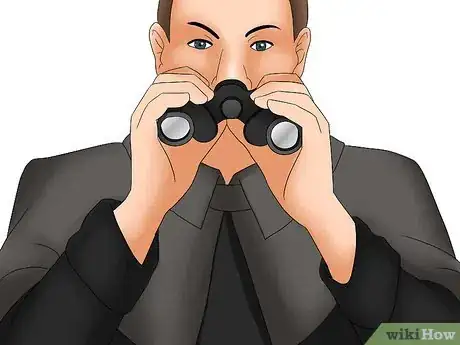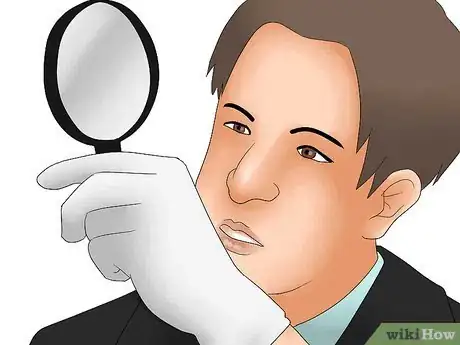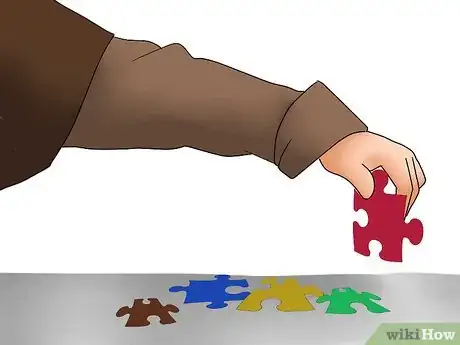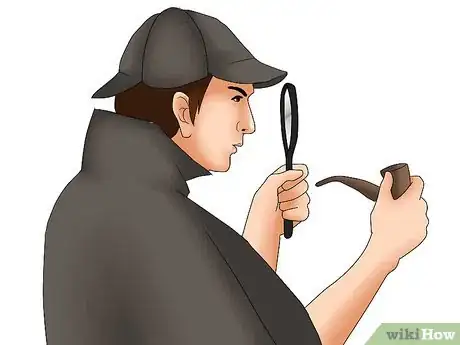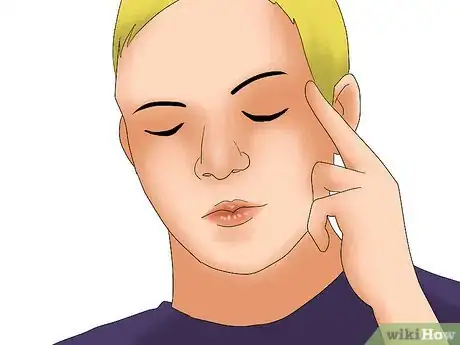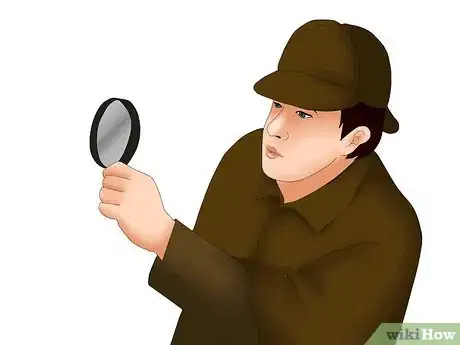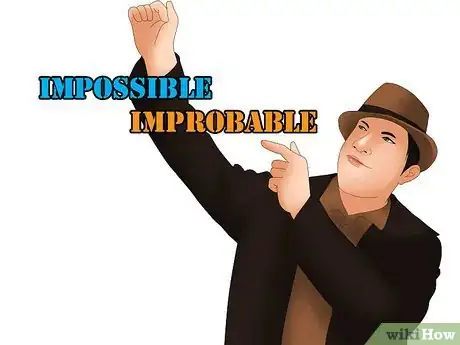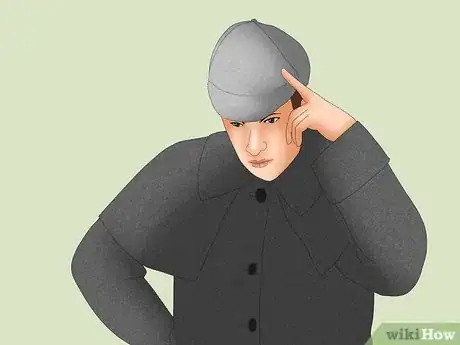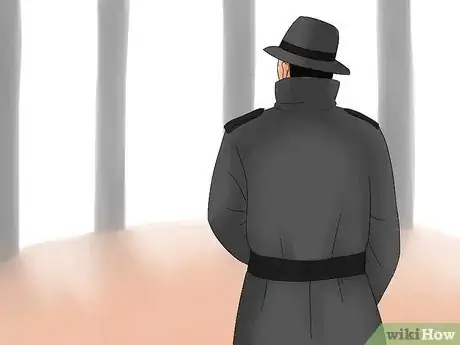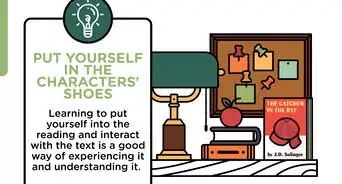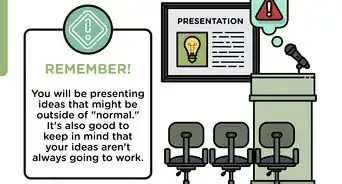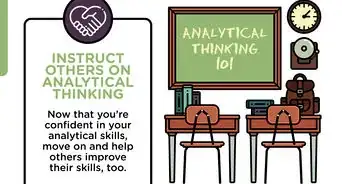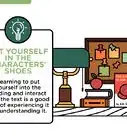This article was co-authored by Sandra Possing. Sandra Possing is a life coach, speaker, and entrepreneur based in the San Francisco Bay Area. Sandra specializes in one-on-one coaching with a focus on mindset and leadership transformation. Sandra received her coaching training from The Coaches Training Institute and has seven years of life coaching experience. She holds a BA in Anthropology from the University of California, Los Angeles.
There are 10 references cited in this article, which can be found at the bottom of the page.
wikiHow marks an article as reader-approved once it receives enough positive feedback. In this case, 92% of readers who voted found the article helpful, earning it our reader-approved status.
This article has been viewed 95,604 times.
Sherlock Holmes is known to be a genius detective, but most people can train their minds to think a little more like Sir Arthur Conan Doyle's famous character simply by emulating the way that Sherlock behaved. Teach yourself to make better observations and to analyze those observations more effectively. If you're up for an even greater challenge, build a "mind palace" or "mind attic" to store your information, as well.
Steps
Observing
-
1Understand the difference between seeing and observing. Watson saw, but Holmes observed. By default, you probably have a habit of seeing your surroundings without processing the basic information. Observing the full details of a circumstance is the first step you need to take if you want to think like Sherlock Holmes.[1]
-
2Be focused and fully engaged. You need to know your limits. The human brain is not structured for heavily complex multitasking. If you really want to make meaningful observations, you cannot be involved in too many activities all at once as it distracts your mind from thinking.[2]
- Being engaged in observation allows the mind to persist longer and trains it to solve problems more effectively and efficiently.
- Staying engaged is actually one of the simpler aspects of observation. All you really need to do is focus only on the matter at hand. When you are making observations, only pay attention to that which you are observing. Leave your phone on silent and don't let your mind stray to that email you need to write later on or the Facebook comment you read an hour ago.
Advertisement -
3Be selective.[3] If you tried to observe everything you saw in full detail, you would make yourself exhausted and overwhelmed in no time. You need to learn to observe your surroundings, but you also need to be selective about the things you focus your attention on.
- Better quality is prized over better quantity. You need to learn how to observe things more thoroughly, not simply how to observe more things.
- The first thing to do in a situation is to size up what areas are vital and which are of no consequence. This takes practice, and there is not much else you can do to hone your ability to distinguish one from the other.
- Once you determine which aspects are essential, you need to observe them down to the smallest details.
- If the areas you observe do not provide you with the sort of detail you need, you may need to slowly expand your field of observation to other aspects of the situation you previously ruled out as being inconsequential.
-
4Be objective. By nature, humans tend to have biases and preconceptions that influence they way they perceive things. If you really want to make meaningful observations, though, you need to dismiss these biases and be objective as you take a look around.[4]
- The brain often takes what it wants to see and interprets it as fact, when in actuality, it is only perception. Once your brain records something a fact, though, it can be difficult to realize otherwise. You need to focus on being objective as you observe so that you do not taint your well of information.
- Keep in mind that observation and deduction are two different parts of the process. When you observe, you are doing nothing more than observing. Only during the deductive stage can you make judgments on the information you gather.
-
5Make inclusive observations. Do not merely pay attention to what you see. Your observations should include mental notes on other senses, as well, including hearing, smell, taste, and touch.[5]
- Focus on fine-tuning your senses of sight, sound, and smell. These three senses are the ones you rely on most, but they are also the ones you take for granted most. After you can use these senses objectively, move onto touch and taste.
- Practice mindfulness on a regular basis. This will help tune into your different senses and be more aware of them.
-
6Meditate. One practical way to exercise and develop your ability to observe is to meditate for fifteen minutes each day. Meditation can keep your mind keen, make you more aware of what is happening in your brain in real time, and may help acquaint you with the concept of being fully focused on your surroundings.[6]
- You do not need to go out of your way to meditate. All you really need to do is to spend a few minutes a day shutting out distractions and building your ability to focus. You can focus on a specific image in your mind, or you could focus on an external image during meditation. The main idea is simply to make sure that whatever you are meditating on has your full focus.
-
7Challenge yourself. A daily, weekly, or monthly puzzle can help you sharpen your powers of observation. Give yourself a mystery to solve, but make sure that the mystery will require the full use of your powers of observation.[7]
- One simple challenge you can give yourself is to observe something new every day. For instance, take one picture a day from a different perspective. Focus on taking pictures that demonstrate fresh perspectives on everyday locations.
- People watching is another powerful yet simple challenge you can give yourself. Start with simple details, like the clothes a person wears or the way that person walks. Eventually, your observations should include details about body language and signs of specific heightened emotions.
-
8Take notes. Even though Sherlock Holmes does not need to carry around a notepad and pen, while you are working on developing your powers of observation, taking notes can be beneficial. Make sure that the notes you take are detailed enough for you to recall the various sights, sounds, and smells of a situation.
- The process of taking notes forces your mind to pay attention to situations in detail. Hopefully, you will reach a point at which such notes will no longer be essential. At the beginning, though, this activity may help gear your mind toward observing instead of just seeing
Deducing
-
1Ask questions. View everything with a healthy level of skepticism and continually ask questions about what you observe, think, and feel. Instead of jumping straight to the most obvious answer, break any dilemma down further into more questions, answering each one so that you arrive at the most thorough solution.
- You should also question every new piece of information you gather before storing it into your mind. Ask yourself why the information is important enough to remember or how it connects to that which you already know.
- In order to ask important questions, you also need to educate yourself well. Thorough reading comprehension and a solid base of knowledge will help tremendously. Study topics of importance, experiment on matters that catch your curiosity, and keep a journal to track your thought patterns. The more you know, the more likely you are to ask questions that really matter.
-
2Know the difference between impossible and improbable. By human nature, you might be tempted to rule out a possibility if it seems unlikely or improbable. These possibilities must be allowed for, however. Only the impossible—that which cannot be true no matter what—can ever be ruled out completely.
-
3Keep an open mind. Just as you need to throw out old biases when observing a situation, you also need to throw out such biases when analyzing a situation. The things you only feel do not hold as much weight as the things you know or deduce. Intuition has its place, but you need to balance both intuition and logic.
- Avoid making any theories before you have all the evidence. If you form a conclusion before you gather and analyze all the facts, you will taint your thought process and have a more difficult time forming an accurate solution.
- You must learn to twist theories to suit facts and not the other way around. Gather the facts and throw away any ideas or possible theories that do not fit with those facts. Do not make assumptions about possibilities that only exist in theory and not in fact, especially if you are tempted to do so simply to make your previous theory work.
-
4Talk to a trusted colleague. Even though Sherlock Holmes is the renowned genius, his intellect would have been a bit crippled if he did not have Dr. John Watson to bounce ideas off of. Find a friend or colleague whose intellect you trust and discuss your observations and conclusions with that person.
- It is important that you allow the other person to shape theories and conclusions without ruling out the information you already know to be true.
- If your discussion brings up new ideas that alter your theories, allow it to happen. Do not let pride come in between you and the truth.
-
5Give your mind a break.[8] Your mind will burn out if you continually leave it set to “Sherlock” mode. Even the great detective himself took breaks during particularly grueling cases. Letting your mind rest actually improves its ability to form accurate conclusions in the long run.
- Focusing too intensely on a problem can cause your mind to become worn out, and as a result, it will process information less accurately. Giving your mind a chance to relax can allow it to make connections steadily and subconsciously, so when you return to the problem, you might realize a seemingly obvious train of thought you hadn't noticed before your rest.
- Some good ways to relax your mind and feel more connected with your body at the same time include dance, yoga, breathwork, doing a workout, or getting out to enjoy nature, sun, and fresh air.
Building a Mind Palace
Please note this is from the Sherlock series by BBC and not Arthur Conan Doyle's books. Arthur never wrote about Sherlock having a mind palace. Sherlock only had a mind palace in the BBC series. Even if this is fan fiction this will probably help.
-
1Know the benefits of having a mind palace. A “mind palace” or “mind attic” allows you to organize information in a way that makes it more readily accessible and easy to remember. Holmes used this technique, but the concept itself actually dates back much further than that.[9]
- Officially, this technique is called the "Method of Loci," with loci referring to the Latin plural form of "location." It dates back to Ancient Greece and Rome.
- Facts and information are remembered by associating them with a specific physical location.
-
2Build your space. Choose an image that you can visualize clearly and in full detail inside your mind. The place you choose for your mind palace can be somewhere you created or somewhere you once visited.[10]
- A larger space is preferable since you can store more information. For instance, if you imagine a literal palace, you can assign a separate room to each discipline or subject area.
- If you choose a place that exists in the real world, make sure that you know the place well enough to visualize it in great detail.
-
3Map out a route. Visualize yourself moving through your mind palace. The route should be the same each time, and you should practice traveling that route often enough for it to become second nature to you.[11]
- After you set the route, you need to identify markers along that route. For instance, you might imagine half a dozen chairs or a series of lamps in a long hallway, or you could identify each piece of furniture in a dining room or bedroom. Spend time in each spot along your route and define as many of these markers as possible.
- Even when you do not have a need for your mind palace, you should take the time to mentally stroll through it. Keep the details and route the exact same each time. You need to make this place seem as real to you as any place that actually exists within the real world.
-
4Place key items along this route. Once you know how to travel through your mind palace, you need to begin filing information along the route you travel. Picture placing the information in a specific location. As before, practice traveling along your route and accessing that information often enough to become accustomed to the action.[12]
- Use the details you pinpointed previously as you assign information to various parts of your mind palace. For instance, if you imagined a lamp in the corner of a room inside your mind palace, you may end up picturing a key person turning on that lamp in order to remember a detail concerning that person.
- Make the details as specific and unusual as possible. The mind will actually have an easier time remembering something strange than it will if you make everything seem too normal or ordinary.
References
- ↑ https://fs.blog/2013/04/the-art-of-observation/
- ↑ https://www.livescience.com/37420-multitasking-brain-psychology.html
- ↑ https://scholarlycommons.law.northwestern.edu/cgi/viewcontent.cgi?article=3993&context=jclc
- ↑ https://www.psychologytoday.com/us/blog/the-resilient-life/200909/how-be-more-objective-and-stand-rather-be-bothered-irritating-things
- ↑ https://www.hvl.no/en/collaboration/project/sci-talk/toolbox-tekstual-resources/introduction/natural-science-skills-and-topics/role-of-the-learning-environment/observation-as-sensory-skills/
- ↑ https://www.psychologytoday.com/us/blog/you-illuminated/201204/brain-scans-show-how-meditation-improves-mental-focus
- ↑ https://www.psychologytoday.com/us/blog/brain-workout/201503/7-puzzles-challenge-your-critical-thinking
- ↑ http://www.psychologytoday.com/blog/creating-in-flow/201303/8-strategies-thinking-more-sherlock-holmes
- ↑ https://www.asundergrad.pitt.edu/study-lab/active-memorization
About This Article
If you want to think like Sherlock Holmes, the first thing you should do is start practicing your observation skills so you can take in all the details of a place or circumstance. To do this, figure out what aspects of a situation are essential and then observe those down to the smallest details, so you’re focusing on quality not quantity when analyzing something. For example, if you're interested in a certain store at the mall, focus on observing that place rather than watching all the other shoppers walking around. Along with paying attention to what you see, rely on your sense of smell, taste, sound, and touch to create even richer mental notes. While you work to become a better observer, develop your deductive ability by keeping an open mind and questioning every piece of information you gather. That way, when you have all of the facts, you can make a deduction based on logic, not biases. For more tips, including how to challenge your powers of observation, read on!
